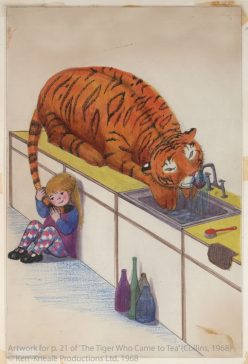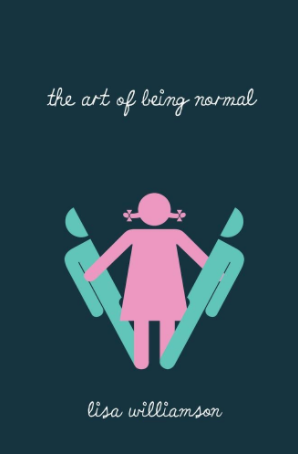Dr Lucy Pearson
The North East has long been a hotbed of activity around children’s books, and one example of that is the North East Teenage Book Award, now in its eighteenth year. I was lucky enough to be invited to this year’s award ceremony, a gala occasion hosted by the Centre for Life. I have a particular interest in children’s book awards – I’m currently working on a history of the Carnegie Medal – so I was excited to be in on the action.
Unlike the Carnegie Medal, the NETBA is judged by teenage readers themselves, and I arrived at the Centre for Life to find it full of excited young readers. The queue for the bookshop (run by our friends from Seven Stories) was a mile long and there was a huge sense of anticipation in the air. This was heightened by the fact that every single one of the shortlisted authors had made the journey to Newcastle for the awards ceremony. After several months in which the young people participating had read and discussed the books, researched the authors, and taken on the hard job of picking a winner, they were clearly thrilled to meet the authors in person.
This year’s shortlist is very varied, running the gamut from historically-tinged fantasy through dystopian thriller to contemporary realism. You can see details of all the shortlisted books, along with short video interviews with the authors, on the NETBA website. I was impressed by the variety of the shortlist, and by the fact that many were first novels. Book awards – both children’s and adults – can often feel as though they are defaulting to the usual suspects, and it was refreshing to see so many new authors on the list. This seems to me to be a huge strength of an award chosen by teenage readers themselves, especially now that the internet makes it so much easier for young people to discover new books directly. As a children’s book professional, I’m only too aware how hard it is for adults to stay current with everything that is coming out – teenagers can be much more responsive.

Each author was introduced by a team of young people, and once again I was struck by how much the teen-centred nature of this award adds to the whole experience. The introductions were all fantastic: well-researched, professional and funny. I hadn’t read any of the shortlisted books beforehand, and I got a really good sense of what they were like and which ones I might enjoy based on these short introductions. Bravo to all the presenters.
The winning novel was Lisa Williamson’s The Art of Being Normal, a dual narrative novel focused on a trans teen. This was a book that was already on my radar, and after the introduction to it at the ceremony it’s definitely moved up my list. One thing I really enjoyed about Williamson’s discussion of her own book was her emphasis on the light-hearted elements of the story – I’ve read quite a few books focusing on trans characters, but they do tend towards the angsty. I’m looking forward to reading Williamson’s book, and the rest of the shortlist.
The North East Teenage Book Award is aimed at ‘Getting and keeping young people reading’ and it’s clear that it’s a massive success. Indeed, although I often hear adults talk with dismay about young people’s lack of interest in reading, this event reminded me that people have been voicing such concerns as long as books have been around. I was struck by the fact that all the authors spoke of the possibilities involved in writing for young people, who they characterised as more open-minded and more flexible in their approach to genre. (This kind of flexibility is certainly one reason why I enjoy researching children’s books.) And based on the young people I met at the award ceremony, reading is far from dead: there are plenty of engaged, adventurous and enthusiastic young readers. I’ll be looking to the NETBA in future to find new and exciting authors to read.

